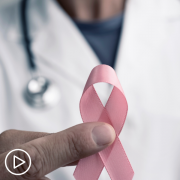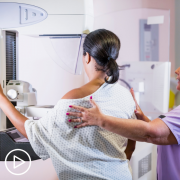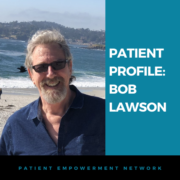How Can Breast Cancer Providers and Patients Help Address BIPOC Disparities?
How Can Breast Cancer Providers and Patients Help Address BIPOC Disparities? from Patient Empowerment Network on Vimeo.
Can breast cancer providers and patients help address BIPOC disparities? Dr. Regina Hampton provides insight on differences she’s seen with BIPOC patients moving forward after diagnosis and ways patients can empower themselves toward receiving optimal care.
See More From the Best Care No Matter Where You Live Program
Related Programs:

|

|

What Steps Can Breast Cancer Patients Take To Be More Proactive? |
Transcript:
Dr. Nicole Rochester:
Dr. Hampton, you mentioned that you in practice have seen differences in the way that your white patients handle their breast cancer diagnosis compared to your Black patients, and I was wondering if you’d be willing to expand on that just a little bit, what are some of those differences that you’ve seen between those two groups?
Dr. Regina Hampton:
So, I noticed that in the white women that I’ve diagnosed, that they just seem to take the diagnosis and are ready to jump on board, ready to move forward with treatment and figuring out what needs to be done. And I’ve found with my African American women, it just, it takes a little bit longer explaining, trying to get them to understand the how, the why, what we’re getting ready to do, and even with that explanation, there’s still some hesitancy. And so, I’m curious to know what is that and why is that? And really hear from the patient’s perspective.
Dr. Nicole Rochester:
That’s really interesting because, of course, right now in the midst of the pandemic, that just mirrors what we’re seeing with COVID-19 vaccination, and I wonder if what you’re seeing with your African American patients with breast cancer has to do with mistrust, and what we talked about just related to some of the history regarding the treatment of people of color by the health care system and racism and bias, do you think that there’s a level of mistrust of the healthcare system that may be playing into some of that reluctance that you’re seeing?
Dr. Regina Hampton:
Absolutely, absolutely, yes. And I’d just be curious to just hear from that patient perspective, I think a lot of those things, as we saw in the pandemic, we carry those things even though so much has changed from back in the day. So, it’s going to be interesting to hear that from the patient perspective and then to be able to hopefully share that information, and I think it could translate, as you were mentioning in to other areas of health, and see if we could then take that to a broader audience and try and make a difference in these disparities.










